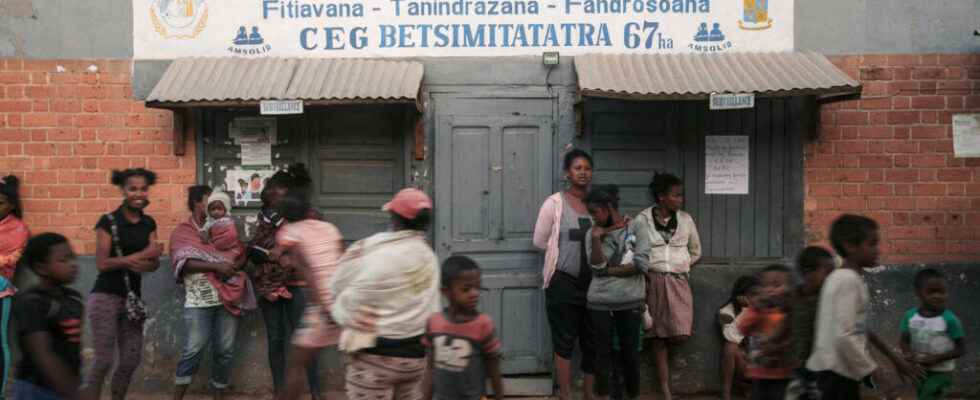In Madagascar, the Cheneso storm, which left sixteen dead, nineteen missing and more than 55,000 victims according to a latest assessment, revives the debate on the compatibility between the current school calendar and the rainy season. More than 5,300 students are currently deprived of lessons, according to the authorities.
With our correspondent in Antananarivo, Laetitia Bezain
To Madagascar, the damage caused by the Cheneso storm on schools is reigniting the debate on the school calendar in this rainy season. More than 160 schools, colleges and high schools were affected by the floods caused by this strong tropical storm, depriving more than 5,300 students of lessons, according to the provisional assessment of the authorities.
A figure which does not take into account the school districts – in particular that of the capital Antananarivo – which decided to suspend the courses this week as a prevention because of the heavy rains which continue to fall on the Big Island.
► To read also: Madagascar: nine national roads cut by tropical storm Cheneso
For several years, civil society organizations involved in the education sector have been advocating for a new school calendar adapted to the climate and infrastructure of Madagascar.
Long holidays during the rainy season and lessons in July and August during the dry season. This is defended in particular by the Strategic Education Alliance, which brings together several civil society organizations involved in the education sector, for whom the current timetable, modeled on that of France, has not of meaning.
“Children’s classes are interrupted all the time and their level drops a lot”
Lily Razafimbelo, teacher of documentary information sciences at the University of Antananarivo, is one of the members of the Collective of citizens and citizen organizations: ” With climate change, it’s not only the coastal regions, but it’s also now the highlands that are also victims of these flooding problems during the rainy season. So this has an impact on the school level which is already very low. For us, it is nevertheless the interest of the majority that we are defending, and not just the interest of a small minority which refuses this new calendar. Because, for them, it is out of step with the European countries where they send their children. »
A new calendar, which begins in March and ends in December, was included in the education sector plan (2018-2022), but was ultimately never applied. Ny Aina, father of two children in primary school in Antananarivo, is annoyed by this problem which is repeated every year: ” The rainy season is every year! It’s not something you discover. The current calendar is not suitable for our country. You have to make a decision once and for all, because the children’s classes are interrupted all the time and their level drops a lot. »
Contacted, the Director General in charge of schools within the Ministry of Education indicates that studies are underway so that each region sets its own agenda according to its specificities.
